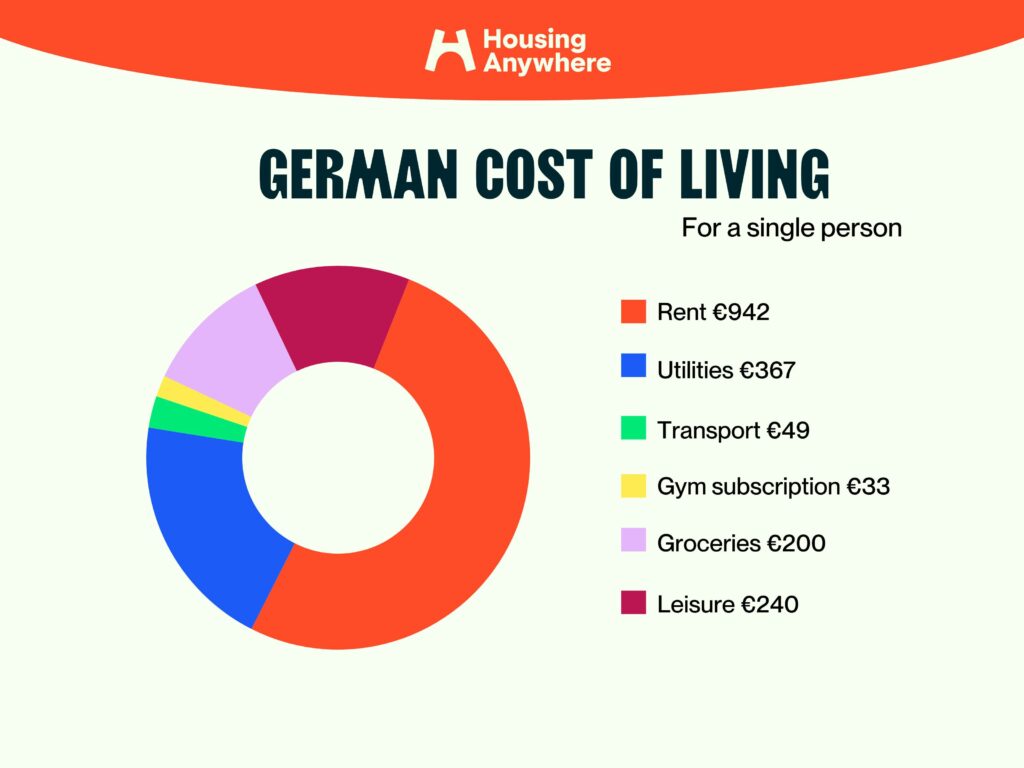Why Germany is appealing to veterans.
Germany is a fantastic choice for US military veterans eyeing a new chapter. It’s got a familiar vibe, thanks to U.S. bases that create a welcoming community atmosphere. The Army, Air Force, Marines and Special Operations all have a home in Germany. This means access to bases, PX’s, and military culture. The lifestyle is hard to beat with top-notch healthcare and cities that are a breeze to get around.
Introduction to Germany
Overview of Germany’s culture, history, and environment.
Germany is rich in history and culture. Think ancient tribes from Roman times, all the way through two World Wars and the Berlin Wall. Today, it’s known for its democracy, strong economy, and cultural contributions (like Oktoberfest and Bach).
The environment is varied – from the Bavarian Alps to the North Sea shores. It’s not hard to travel across Germany using public transportation, or the Autobahn. Unlike America, Germany is quite small – the weather and environment won’t differ as much as the states city to city.
“Today there are around 40,000 troops stationed in Germany and many of them like myself are choosing to stay here after getting out of the military.”
Robert Cox, US Army Veteran
For those into history, Germany’s rich past is a treasure trove to explore. Check out the ten best historic sites in Germany from castles, to concentration camps and Viking museums. Education is a big plus, with some universities offering free tuition, which is great for furthering your studies. I learned German using my GI Bill, my class was full of veterans and I made a lot of friends.
The job market is strong, especially in fields like tech and engineering. Outdoor enthusiasts will love the breathtaking landscapes, from mountains to lush forests. I’m into photography and it’s been great to explore and take photos. Being in the heart of Germany, adventuring to other countries is easy. Language isn’t as big of a barrier as you might assume, many Germans speak English. Overall, Germany offers a comfortable, culturally rich, and opportunity-filled setting, ideal for veterans transitioning to civilian life or seeking a new adventure.

The Veteran Community
- Many veterans are in Germany because of its several active military bases. These are some places that offer different facilities, including Post Exchanges (PX) and opportunities for health services. One is likely to encounter communities familiar with being around the U.S. military close to the mentioned military bases. In addition, it’s natural to even find English speakers in remote areas.
- Despite the relatively small country size, Germany houses a strong network for American veterans. A huge benefit of Germany over other European nations you have lots of fellow veterans there, that includes American Legion posts like these ones in Stuttgart, Kaiserslautern and more. There are also 15 VFW posts throughout the country, so anywhere you live you’ll be close to a vet organization.
- By no means does this mean that there will be a veteran present in every town and more will be around the bases. Veterans always seem to find a way of embracing and enjoying the German lifestyle, from the beer to the Autobahn.
Lifestyle Options
- Germany is full of great places to visit, and you are never more than 2 hours from some amazing castle or vast fields of green. The southern part of Germany towards Austria has amazing areas to visit. Hiking trails are near the Garmisch area which is a popular destination for MWR, BOSS and other military events. Up north you have more of a city life, with amazing old buildings, the north sea, and many more great things to see. It’s easy to travel unrestricted and visit areas on a whim throughout Europe thanks to the SHENGEN Zone.
- German culture is similar to the type of culture you would find in, say, boulder Colorado. People are outdoors more than in the states, especially Sundays which have a lot of cultural events. They value community and love being out and about – this makes for a great amount of hiking and walking/biking trails available year round – in some places you can even travel from town to town without ever leaving the designated walking path.
. Cost of Living
- Average living costs
- You’ll be happy to know that the cost of living in Germany is roughly 35% cheaper than in the USA. My costs of food, utilities, and general life expenses are significantly lower than when I lived in the USA. Obviously, like the United States – major cities are more expensive but governmental regulations help keep prices within control, opposed to the states where living in major cities has become insane.
No matter where you stay in Germany, you will find the same prices at the bigger chain grocery stores like REWE, ALDI, Netto – Etc. Rural areas are my favorite place to be and I really live a more peaceful life than most veterans I know in the states. Check out this Cost of Living in Germany from Numbeo.
- You’ll be happy to know that the cost of living in Germany is roughly 35% cheaper than in the USA. My costs of food, utilities, and general life expenses are significantly lower than when I lived in the USA. Obviously, like the United States – major cities are more expensive but governmental regulations help keep prices within control, opposed to the states where living in major cities has become insane.
- Comparisons of cost of living between U.S. and Germany
- The biggest comparison I can make regarding the cost of living difference would have to be taxes, and gas prices. Moving to Germany from the U.S. involves understanding key tax differences. Both countries tax worldwide income, but rates differ: the U.S. has a progressive system ranging from 10% to 37%, while Germany’s rates range from 14% to 45%, plus a 5.5% solidarity surcharge. Social security contributions in Germany are more comprehensive, covering health, unemployment, and pension insurance, leading to higher contributions but more benefits compared to the U.S.
- In terms of consumption taxes, the U.S. applies varying sales taxes at the point of sale, whereas Germany includes a higher standard VAT rate in the price of goods and services. Tax filing in Germany is often simpler for employees as taxes are usually withheld from wages. Each country offers different deductions and credits. While taxes are higher here in Germany, you can easily see where those taxes go in your day to day life. I have always said that I would rather pay more taxes, as long as I can see where they are going, and my children can benefit from the things they cover.
- Gas is about 1.72/L which is around $6.50/Gallon – Yes that can be extremely expensive and sucks. But that feeling is offset by the efficient road system, affordable transportation and the Autobahn.
Housing
Tips on finding and renting property
- Finding property to purchase can be a bit of a struggle here in Germany. A lot of the German people keep/stay in their houses or pass them down through the families, especially in village communities. That’s not to say they won’t have anything available – but it’s very different from the real estate market in America. It’s usually better to initially rent to see if Germany is a good fit and you enjoy the lifestyle.
- Germany’s major cities are known for their varied cost of living, with rent being a significant part of monthly expenses. The average rent prices can vary widely between cities and are generally higher in city centers compared to the outskirts or surrounding villages. Below is a summary of the average rent prices for a single person home (1-bedroom apartment) and a family of three (3-bedroom apartment) in five major cities across Germany. It’s worth noting that these figures can fluctuate based on the exact location within the city, the quality and age of the housing, and the current market conditions.
Here are two of the best housing sources in Germany for you to do your own research. Besides these two sites it’s always a good idea to look at FB groups like this one of Americans Living in Germany and others like it.
– ImmoScout
– WG-Gesucht

Healthcare System
- Overview of the German healthcare system
- The German healthcare system operates on a principle of universal coverage, providing access to comprehensive healthcare services for all residents, including expatriates. It is primarily funded through a statutory health insurance (SHI) scheme, known as “Gesetzliche Krankenversicherung” (GKV), into which both employees and employers contribute based on earnings. Individuals have the option to enroll in private health insurance (PHI) if they prefer, typically available to higher earners or those seeking more extensive coverage. The system ensures that healthcare costs are shared and affordable, with equal access to medical services regardless of income level.
- The German healthcare system operates on a principle of universal coverage, providing access to comprehensive healthcare services for all residents, including expatriates. It is primarily funded through a statutory health insurance (SHI) scheme, known as “Gesetzliche Krankenversicherung” (GKV), into which both employees and employers contribute based on earnings. Individuals have the option to enroll in private health insurance (PHI) if they prefer, typically available to higher earners or those seeking more extensive coverage. The system ensures that healthcare costs are shared and affordable, with equal access to medical services regardless of income level.
- Access to healthcare services for veterans, including those with disabilities
- There are MANY options for veterans over here in Germany as far as getting healthcare. Tricare Overseas, Foreign Medical Program, and the option of using the Military Bases. The veteran organizations are a good place to look into your options and a lot of veterans end up living in Germany because of DoD employment.
- There are MANY options for veterans over here in Germany as far as getting healthcare. Tricare Overseas, Foreign Medical Program, and the option of using the Military Bases. The veteran organizations are a good place to look into your options and a lot of veterans end up living in Germany because of DoD employment.
7. Moving to Germany
Embarking on the journey to move and working in Germany as a veteran involves navigating through the country’s structured visa system and adhering to its application process. Here’s a streamlined guide to get you started:
- General Employment Visa: For individuals who have received a specific job offer from a German employer. It requires vocational qualification and a contract with a German company. Generally your employer will get you started on this if you’re moving for work.
- Blue Card EU: Aimed at highly skilled professionals in fields such as IT, engineering, and science. Applicants must have a university degree and a job offer with a certain minimum salary.
- Freelancer Visa (Freiberufler Visa): For those planning to work as freelancers or self-employed individuals in Germany. Applicants need to prove they have potential clients or a business plan.
- Job Seeker Visa: Allows individuals to enter Germany for up to 6 months to seek employment. Note that you cannot work on this visa, but it can be converted into a General Employment Visa or EU Blue Card upon finding a job.
- Tourist Visa: As an American you can enter Germany for up to 90 days visa free.
Visa requirements change over time. I’m married to a German citizen and have German/American children. This is just a basic list to get you started but there are more options to research based on your personal circumstances.
Basic Application Process
- Identify the Right Visa: Based on your qualifications, job offer, and career goals, determine which visa category best suits your situation.
- Gather Required Documents: Typically, you’ll need your passport, job offer contract, professional qualifications, CV, proof of health insurance, and possibly a letter. Specific requirements can vary by visa type.
- Prepare Your Application: Complete the application form for the chosen visa type. You can usually find the forms on the website of the German Federal Foreign Office or the nearest German embassy or consulate.
- Book a Visa Appointment: Schedule an appointment at the German embassy or consulate in your country. Wait times can vary, so it’s advisable to do this well in advance.
- Attend the Visa Interview: Present your documents and attend a visa interview. Be prepared to answer questions about your job, qualifications, and reasons for moving to Germany.
- Wait for Processing: The processing time can vary from a few weeks to several months, depending on the visa type and your specific case.
- Entry and Residence Permit: Once in Germany with your visa, you’ll need to apply for a residence permit to live and work there long-term. This is usually done at the local Foreigners’ Office (Ausländerbehörde) in Germany.
General Pros of Life in Germany
- The lower cost of living than in the states
- Greater quality of life and work/life balance
- Safety: Germany is a very safe country
- The cultural exploration, castles hiking, and nature
- German Beer (for me at least)
- The Autobahn, which is very fun and safe
- Efficient public transportation
- Punctuality, German people value timeliness
- The Christmas Markets!
General Cons of Life in Germany
- Bureaucracy: There are strict rules and regulations
- Weather: It’s not exactly a tropical climate and can feel grey a lot of the year. Think like Portland weather
- Some apartments are rented without kitchens
- Traditional German food is good, but fatty
- It can sometimes be challenging to make German friends
- Language barriers, German isn’t very easy to learn
As someone who’s lived in Germany for years now, the pros outweigh the cons. I still sound like the American version of Arnold Schwarzenneger when I speak German and miss certain things about the states, like the Baltimore Ravens but I’ve built a life for myself here. I was stationed here at Schweinfurt at Ledward Barracks, deployed from here and met my wife here.
About the Author:
Rob spent 11 years in the Army with two deployments to Iraq and one to Afghanistan. Instead of listening to what everyone told him, he joined the Army to see the world and learn about things firsthand instead of listening to the talking heads on the fuckin’ television. Follow Rob’s journey over on Instagram and contact him with any questions.
After medically retiring in 2018, Rob and his wife of fourteen years Sylvia moved to Germany and now have two amazing children. His son Adrian is a redheaded shit just like him and is constantly screaming “nein!” Sylvia and Rob’s daughter Sylvia is full of attitude. Living in Germany for them has been challenging and Rob is known in their small town as “The Tattooed American.” The military teaches all of us to not get attached to any one place but life in Germany has been good for the Cox’s and a lot of other veteran families.
Rob works as the VP of Battle Tested Security, hiring veterans for security work at music festivals, sporting events and more. Outside of work he enjoys gaming, photography, and travel. Lately he’s diving into getting mindfulness out into the veteran community.
Rob’s eager to support veterans any way he can, please reach out if you know any great resources, non-profits, and if you ever find yourself in Germany – Get in touch for a beer and sauerkraut. Connect with him on Instagram: @Insight_Foolish.
John’s Note: My mission is to provide positive information for veterans about living abroad, resources and information. There are no affiliate links in any of my living abroad articles. I believe sometimes veterans can be healthier and happier outside of the United States. There’s no running away or escaping your problems. But often times, you can heal, grow, and find peace abroad in ways you can’t in the USA. Read and download my Free Veterans Guide to Moving Abroad. If you’re struggling with your mental health, I’m here for you if you want to talk.
I respond to all my social media messages and emails as long as it’s not weird shit. You can also contact a veteran organization or chat with the Veterans Crisis Line.
Thanks to Rob for writing this piece to help our military brothers and sisters. If you’re a veteran living abroad and would like to contribute a guest article, reach out to me. If you’re starting to think about taking the leap overseas, read my article 5 Tips For Veterans Moving Abroad article and check me out on Instagram and TikTok.
